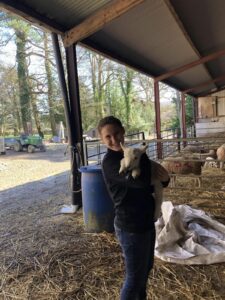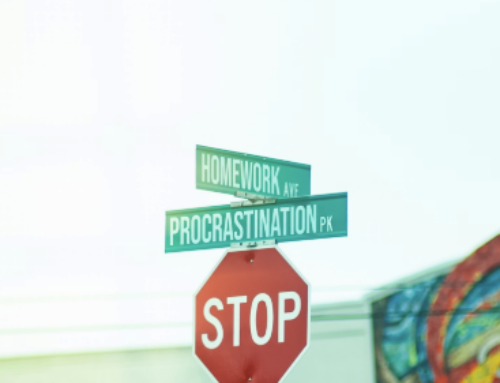 My Experience
My Experience
Upon graduating high school, I had a pretty strong sense of what I wanted my undergraduate career to look like. I wanted to study English, work at my undergraduate’s student newspaper, and get an internship in publishing. However, by the time I walked across my high school’s stage and accepted my diploma, I was exhausted. For the past four years, I had been consistently juggling many things: leading multiple extracurricular clubs, captaining my field hockey team, working a part-time job, and trying to have a social life—all on top of applying to colleges and thinking about my future. I was burnt out. The idea of jumping straight into college was exhausting, and I worried I would be too tired to dedicate myself fully to my studies.
Much to my mother’s chagrin, she suggested I take a gap year. I had been fortunate enough to save up enough money to travel with my school to France and England during my junior year spring break, and the itch to travel had infected me. I was eager to explore the world at my own pace, visit the sights I wanted to see, and try new things. I didn’t realize the education I truly needed was in navigating my newfound adult independence.
Deferring my studies for a year, I decided I’d spend my time volunteering on farms in France and Ireland through a program called Worldwide Opportunities on Organic Farms (WWOOF). It was an inexpensive way to travel for six months, and the work was unique and interesting to me. I’d never worked manual labor before, and the chance to connect with nature was a bonus.
I could recount endless stories about my six months in France and Ireland. The first month was frighteningly enlightening. I got lost so many times, including one instance where I missed my train and got home in pitch darkness. Another time, my phone died, and I had to figure out how to get to my hostel on my own (freaking my mother out in the process, as she was tracking my location). On top of it all, I was extremely homesick. However, I pushed through, learned from my mistakes, and kept moving forward. That first month alone gave me the confidence I still rely on to this day: if I could survive all that, I can survive anything.
However, my whole experience wasn’t just scary lesson after scary lesson; with each mistake, my knowledge of the world grew. I was able to learn from my mistakes and learned how to navigate the world on my own. I also got the chance to experience new cultures and try unique experiences. I visited over twenty cities from Galway in the west of Ireland to Nice in the south of France, explored countless museums, and saw so many famous landmarks. Not only that, but I learned how to make handmade Belgian chocolate, saw The Book of Kells at Trinity College’s breathtaking Old Library in Dublin, Ireland, and even had time to catch The Phantom of the Opera in the West End while I was passing through London, England.
The work I did on the farms was an education in perseverance and patience. Unintentionally, I’d found farms that primarily needed help with their sheep: shepherding, lambing, and caretaking. I’d initially been hesitant to work with the stubborn creatures, who rarely ever did what you wanted them to do. However, by the time my six months were up, I was a skilled shepherdess and a fearless caretaker, jumping into the back of a trailer to help transport the sheep from their winter paddocks to spring fields. I even helped with one sheep’s tricky birth, pulling her lamb out with large, neon blue gloves that went up to my armpits.
Gap Year Benefits
While shepherding and lamb birthing aren’t skills I imagine will come up in my future career as an editor, learning how to tackle difficult tasks has provided me with the courage and confidence needed to make it in today’s job market. It’s these “soft” skills that I attribute much of my success to.
I’m not the only student who has mentioned the benefits gap years have had on their confidence, both personal and academic. Hudson Juenger, a student going into his first year of college, told the New York Post how beneficial his time off was: “I actually know what it’s like to move out and go to work every day and live in a more realistic work environment than going straight to college. . . . I think I’m going to be a lot more appreciative of my college experience than a lot of my other friends are.”[1] He, and other students, mentioned how taking time away from traditional schooling helped open their eyes to the real world and how their gap years helped them focus on what they actually enjoyed doing.
In the wake of the COVID-19 pandemic, many students took time off, a leave of absence, or a gap year because they would rather not study online. Now that it’s been a few years out, the number of students who are taking gap years has lessened but is still significantly higher than it was before the pandemic. Students who are burnt out from school, unsure of their career path, or who want to try new experiences should seriously consider taking a gap year, if that’s a viable option for them. The pandemic allowed students to take a break from the constant stress of school and allowed them to think about what they wanted their future to look like. For students who need some time, a break, or to be independent, a gap year is a great solution.
Going Back to School
For those worried that students who take a gap year won’t continue their studies, consider the testimonials from the New York Post article. Student Kaylyn Klumper was initially set on physiotherapy, but by taking a gap year and working in the medical field, she decided that she wanted to pursue a career in nursing instead. She’s starting her undergraduate career with a clearer vision of her future. Even the parents of these students have noticed a difference. One father reported that his son returned from his gap year “healthy, happy, and with a new level of wisdom not usually seen in a 20-year-old.”[1]
And as for me? After my gap year, I started my undergraduate career refreshed and ready to learn. I was fortunate enough to work at my student’s newspaper, work at my university’s Writing Center as a tutor, and even get a publishing internship at an academic press. After graduating, I took another gap year before applying to graduate school, where I’m now finishing my final year and will earn my master’s degree in the spring.
Publishing Solutions Group
Publishing Solutions Group is committed to improving the education of all students. We support our many clients by creating educational materials to help students with their academic goals, and we support the different types of learning environments that each student needs to succeed.
This commitment is further realized through a continuous cycle of research and development, ensuring that educational solutions are not only pedagogically sound but also responsive to the evolving needs of modern classrooms. By actively collaborating with practicing teachers, curriculum specialists, and educational researchers, Publishing Solutions Group grounds its materials in real-world experience and evidence-based instructional strategies. This collaborative process ensures that every deliverable, from its core content to its supplemental activities, is purpose-built to foster engagement, deepen understanding, and ultimately, empower a new generation of lifelong learners.
[1] https://nypost.com/2025/07/30/us-news/gen-z-embracing-gap-years-before-college-working-3-jobs-made-me-realize-what-i-really-want/
Photo by Olivia Johnson.



